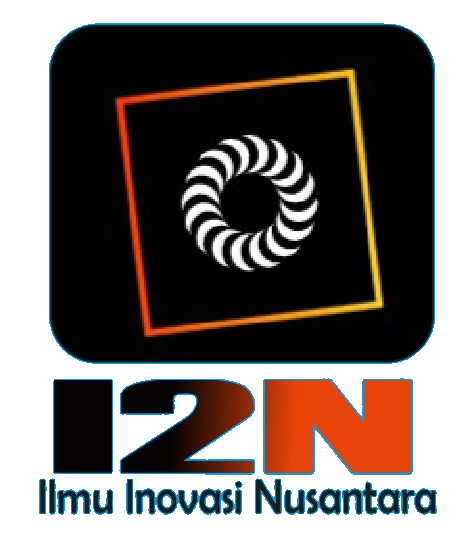Effects of ChatGPT and Generative Artificial Intelligence in Higher Education: Voices of Jamaican Academic Faculty
DOI:
https://doi.org/10.58557/(ijeh).v5i2.314Keywords:
Artificial intelligence, ChatGPT, Higher Education Institutions, Policy implementationAbstract
ChatGPT – the more competent non-biological other – continues to dominate discussions across universities worldwide, with varying views posited for both its inclusion and exclusion in the academic space. Over the past year, several Higher Education Institutions (HEIs) have tested and implemented policies to guide the inclusion of artificial intelligence (AI) for academic purposes. However, research and policies on ChatGPT are not advanced in the Jamaican and Caribbean contexts – a gap this study aims to fill. Consequently, this study investigated academic faculty’s knowledge, usage, and perceptions of ChatGPT, AI policies at their institutions, and the direction HEIs could take to develop appropriate guidelines. Thirteen lecturers from six institutions responded to an online questionnaire. The data was analyzed using qualitative content analysis. Findings reveal that, when the data was collected, the majority of the respondents had either basic notions or no knowledge of the characteristics of ChatGPT. Notwithstanding, the chatbot can help students with assignments and assist lecturers with lesson planning, research papers, and personal tasks. It can be a teacher’s assistant to enhance human knowledge. However, ChatGPT could lead to over-dependence and encourage intellectual laziness among students, which calls for lecturers to curtail assessments to focus on higher-order thinking skills. Furthermore, AI policies are lacking in local institutions, a problem that needs to be addressed promptly, and training and sensitization campaigns are necessary to promote ethical usage. The study has implications for AI frameworks in academic contexts
References
Adel, A., Ahsan, A., & Davison, C. (2024). ChatGPT Promises and Challenges in Education: Computational and Ethical Perspectives. Education Sciences, 14(8), 814. https://doi.org/10.3390/educsci14080814
Bin-Nashwan, S. A., Sadallah, M., & Bouteraa, M. (2023). Use of ChatGPT in academia: Academic integrity hangs in the balance. Technology in Society, 75, 1-11. https://doi.org/10.1016/j.techsoc.2023.102370
Bobula, M. (2024). Generative Artificial Intelligence (AI) in higher education: a comprehensive review of challenges, opportunities, and implications. Journal of Learning Development in Higher Education, 30, 1-27. https://doi.org/10.47408/jldhe.vi30.1137
Chiu, TKF., & Sanusi, IS. (2024). Define, foster, and assess student and teacher AI literacy and competency for all: Current status and future research direction. Computers and Education Open, 7. https://doi.org/10.1016/j.caeo.2024.100182
Clarke, T. (2024, December 16). AI: wake-up call for Jamaica’s education system. Jamaica Gleaner, p. B11. https://jamaica-gleaner.com/article/commentary/20241216/tiou-clarke-ai-wake-call-jamaicas-education-system
Cotton, D. R. E., Cotton, P. A., & Shipway, J. R. (2023). Chatting and cheating: Ensuring academic integrity in the era of ChatGPT. Innovations in Education and Teaching International, 61(2), 228–239. https://doi.org/10.1080/14703297.2023.2190148
Devineni, SK. (2024). AI in Data Privacy and Security. International Journal of Artificial Intelligence & Machine Learning (IJAIML), 3(1), 2024, 35-49. https://iaeme.com/MasterAdmin/Journal_uploads/IJAIML/VOLUME_3_ISSUE_1/IJAIML_03_01_004.pdf
Fulton, R. A., Fulton, D., Hayes, N., & Kaplan, S. (2024). The Transformation Risk-Benefit Model of Artificial Intelligence: Balancing Risks and Benefits Through Practical Solutions and Use Cases. International Journal of Artificial Intelligence and Applications (IJAIA), 15(2), 1-22.
Hicks, M.T., Humphries, J., & Slater, J. (2024). ChatGPT is bullshit. Ethics and Information Technology, 26(2), 1-10. DOI: 10.1007/s10676-024-09775-5
Hua, S., Jin, S., & Jiang, S. (2024). The Limitations and Ethical Considerations of ChatGPT. Data Intelligence, 6(1), 201–239. https://doi.org/10.1162/dint_a_00243
Javaid, M., Haleem, A., Singh, R.P., Khan, S., & Khan, I.H. (2023). Unlocking the opportunities through ChatGPT Tool towards ameliorating the education system. Bench Council Transactions on Benchmarks, Standards and Evaluations, 3.
Koop, M., & Gröblinger, O. (2024). Generative AI and academic integrity - a contradiction? In: European Association of Distance Teaching Universities. (2024, November 25). Leading the Future of Learning. Proceedings of the Innovating Higher Education Conference 2024, S. 101–114. https://doi.org/10.5281/zenodo.14220974
Koshechkin, K., & Khokholov, A. (2024). Ethical issues in implementing artificial intelligence in healthcare. Медицинская этика. DOI: 10.24075/medet.2024.006
Kumar, A., Kumar, A., Bhoyar, S. & Mishra, A.K. (2024). Does ChatGPT foster academic misconduct in the future? Public Administration and Policy: An Asia-Pacific Journal, 27(2), 140-153. https://doi.org/10.1108/PAP-05-2023-0061
Madden, O. (2024, May 24). ChatGPT’s impact on the humanities. Jamaica Observer, p. 15. https://www.jamaicaobserver.com/2024/05/24/chatgpts-impact-humanities/#google_vignette
Madden, O. (2025, January 13). The AI threat to original works. Jamaica Observer, p. 12. https://www.jamaicaobserver.com/2025/01/13/ai-threat-original-works/#google_vignette
Madden, O. N., Johnson, J., Daley, J.-L., & Fearon, L. (2025). Unwrapping Academic Advisement and Student Satisfaction in Higher Education in Jamaica: A Case of Two Private Institutions. International Journal of Education and Humanities, 5(2), 278–296. Retrieved from https://i-jeh.com/index.php/ijeh/article/view/309
Madden, O. N.; Grant, K.; Jackson, M.; Waite, D. (2024). ChatGPT and artificial intelligence in higher education in Jamaica: Opportunity or threat? Reviewing stakeholders’ perceptions. In Y. Choubsaz, P. Díez-Arcón, A. Gimeno-Sanz, J. Hriňák, X. Liashuk, S. Pokrivčáková & H. Vančová (Eds.), CALL for Humanity - EUROCALL 2024 Short Papers. https://doi.org/10.4995/EuroCALL2024.2024.19098
Milmo, D. (2023, February 2). ChatGPT reaches 100 million users two months after launch. The Guardian. https://www.theguardian.com/technology/2023/feb/02/chatgpt-100-million-users-open-ai-fastest-growing-app
Munawar, H. B., & Misirlis, N. (2024, May 17). ChatGPT in Classrooms: Transforming Challenges into Opportunities in Education. International Conference: The Future of Education, 1-5. https://doi.org/10.48550/arXiv.2405.10645
Omar, N. H., Thomas, B., & Johari, N. A. (2024). Redefining Learning: The Groundbreaking Opportunities and Challenges of ChatGPT Integration in Higher Education. International Journal of Academic Research in Business and Social Sciences, 14(10), 2875–2887. http://dx.doi.org/10.6007/IJARBSS/v14-i10/23134
Park, H., & Ahn, D. (2024). The Promise and Peril of ChatGPT in Higher Education: Opportunities, Challenges, and Design Implications In Proceedings of the CHI Conference on Human Factors in Computing Systems. Association for Computing Machinery, 1-21. https://doi.org/10.1145/3613904.3642785
Rajabi, P., Taghipour, P., Cukierman, D., & Doleck, T. (2024). Unleashing ChatGPT's impact in higher education: Student and faculty perspectives. Computers in Human Behavior: Artificial Humans, 2(2), 1-8. https://doi.org/10.1016/j.chbah.2024.100090
Singh, J. P., Mishra, N., & Mishra, K. K. (2025). Promoting Academic Integrity: Strategies and Challenges in Higher Education. In: Higher Education and Quality Assurance Practices, 1-36. IGI Global. DOI: 10.4018/979-8-3693-6765-0.ch007
Sok, S., & Heng, K. (2023). ChatGPT for education and research: A review of benefits and risks. Cambodian Journal of Educational Research, pp. 1-12.
Teachers’ Colleges of Jamaica (2024, August). TCJ Policy Statement Re: AI Use (For inclusion in TCJ Regulations Handbook).
Toktosunova, Aiperi & Fallah, Hanieh & Toutouchi, Zahra & Tadzhibaeva, Zulaikha & Tick, Andrea. (2023). The Impact of ChatGPT on Learning in Higher Education – Results of a Pilot Study. Practice and Theory in Systems of Education, 18(1), 31-50.
Walcott, P.A. (2024). AI Teaching and Learning in Barbados. In T. Bastiaens (Ed.), Proceedings of EdMedia + Innovate Learning (pp. 296-304). Brussels, Belgium: Association for the Advancement of Computing in Education (AACE). Retrieved January 10, 2025 from https://www.learntechlib.org/primary/p/224536/
Wang, H., Dang, A., Wu, Z., & Mac, S. (2024). Generative AI in higher education: Seeing ChatGPT through universities' policies, resources, and guidelines. Computers and Education: Artificial Intelligence, 7, 1-11. https://doi.org/10.1016/j.caeai.2024.100326
Welskop, W. (2023). Chatgpt in Higher Education. International Journal of New Economics and Social Sciences (IJONESS), 17(1), 9-18. https://doi.org/10.5604/01.3001.0053.9601
Yu, H. (2024). The application and challenges of ChatGPT in educational transformation: New demands for teachers’ roles. Heliyon, 10(2), 1-15. https://doi.org/10.1016/j.heliyon.2024.e24289
Zeb, A., Ullah, R. and Karim, R. (2024). Exploring the role of ChatGPT in higher education: opportunities, challenges and ethical considerations. International Journal of Information and Learning Technology, 41(1), 99-111. https://doi.org/10.1108/IJILT-04-2023-0046
Zhai, C., Wibowo, S., & Li, L.D. (2024). The effects of over-reliance on AI dialogue systems on students' cognitive abilities: a systematic review. Smart Learning Environments, 11, 28. https://doi.org/10.1186/s40561-024-00316-7
Downloads
Published
How to Cite
Issue
Section
License
Copyright (c) 2025 Oneil N Madden, Nattalie McKenzie, Jason-Lee Daley

This work is licensed under a Creative Commons Attribution-ShareAlike 4.0 International License.














